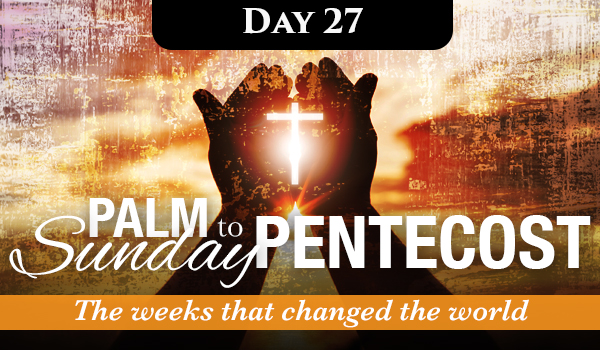While they were stoning him, Stephen prayed, “Lord Jesus, receive my spirit.” Then he fell on his knees and cried out, “Lord, do not hold this sin against them.”
Acts 7:59–60a
As the early church grew post-Pentecost, there became a need for trusted men to oversee the distribution of food to widows. Seven men were chosen, and Stephen was singled out among them as “a man full of faith and of the Holy Spirit” and “a man full of God’s grace and power” (Acts 6:5, 8). God even did great signs and wonders through Stephen. It was this man who would become the first martyr for the cause of Christ.
Just like Jesus, Stephen would be the victim of false witnesses. These liars claimed that Stephen had blasphemed against God and Moses. You can imagine the outrage this would create among religious Jews and their extremely religious leaders, the Sanhedrin.
When given the chance to speak, Stephen did what Peter did and went back in Hebrew/Jewish history. It really is one of the most impressive speeches in the Bible, showing both Stephen’s biblical and historical knowledge, and his anointing by the Holy Spirit. Even the Sanhedrin were amazed that “his face was like the face of an angel.”
Stephen started all the way back with Abraham, Isaac, and Jacob, summarized the highlights of Joseph’s and Moses’ times in Egypt, and culminated in the establishment of the First Temple under Kings David and Solomon.
In particular, Stephen highlighted the people’s resistance to the plans of God. And here they were again, resisting the Most High by ignoring the fact that Jesus was the “Righteous One” (7:52). Some of his final words to the religious leaders were rather harsh. He called them stiff-necked, traitors, and murderers, and so they rushed him out of the city and stoned him (see Leviticus 24:16 for their basis).
Stephen became the first martyr that day, and no doubt died a painful death, but he gained a pain-free eternity. Saul, the future Apostle Paul, was there approving of what was taking place. He then went on a hell-bent mission to persecute Christians everywhere. We all know how his story turns out, though. God turned Saul completely around.
What Stephen did before he died has been a blueprint for millions of Christian martyrs since. First, he did not reciprocate the violence. This is hard for us, because in our emotions, we want justice. Thankfully, we serve a righteous Judge. Every single person will have to individually answer for their actions one day. Second, Stephen prayed for his persecutors. He wasn’t angry. He had pity and wanted God’s mercy on this crazed mob. He knew his rescue would come in this life or the next.
It is important that we look at Stephen (whose martyrdom took place after the Palm Sunday-to-Pentecost window) because his death was a key event as the Gospel spread in the months that followed. Wherever the Gospel spreads, there will be persecution sooner or later. Whether or not we ever see real persecution in America, we need to pray for our persecuted brothers and sisters in Christ around the world.
